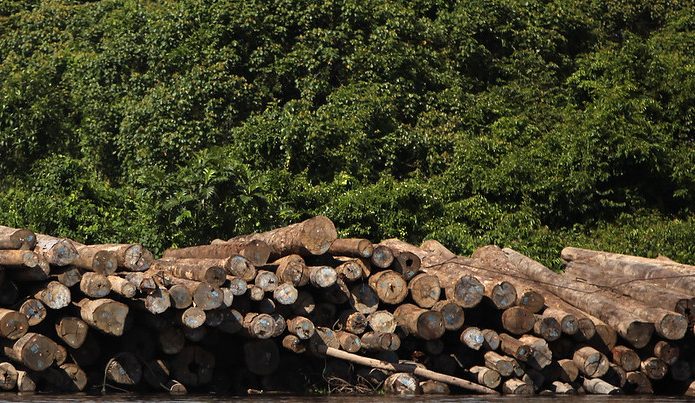
Planet A
Nearly a third of countries worldwide are at risk of ecosystem collapse due to rapid declines in biodiversity and ‘ecosystem services’ that affect humans, says a recent report by reinsurance giant Swiss Re Institute. Thirty-nine countries, including Australia, Israel and South Africa, have fragile ecosystems stemming from problems such as water scarcity, coastal erosion and low rates of pollination. The report also notes that countries with large areas of intact ecosystems, such as Brazil and Indonesia, have a strong economic reliance on natural resources and are depleting them rapidly.
Meanwhile, China has refused to sign a global pledge on biodiversity despite being one of the countries at risk of ecosystem collapse. China’s recent announcement that it plans to become carbon neutral by 2060 may be undermined by its deteriorating natural resources. China’s shrinking ecosystems will force more animals into human-occupied areas, increasing the risk of outbreaks of diseases such as swine flu and coronavirus. Countries around the world will need to re-evaluate how biodiversity loss affects their efforts to combat climate change and infectious diseases.
Democracy watch
Kyrgyzstan is facing a political crisis amid economic uncertainty and concerns of electoral fraud in last week’s parliamentary elections. The results showed that three pro-government parties secured the majority of seats in parliament alongside only one of 13 opposition parties. Opposition demonstrators immediately took to the streets of the capital Bishkek demanding the impeachment of pro-Russian President Sooronbai Jeenbekov.
In response to the protests, a number of politicians, including Prime Minister Kubatbek Boronov, have resigned, and the Central Electoral Commission invalidated the election results ‘in consideration of the political situation in the country’. The Kyrgyz people have twice ousted sitting presidents before, in 2005 and 2010.
In the vacuum left by poor governance, citizens have been relying on digital technologies for public security and effective responses to Covid-19. New pro-democracy parties have been formed that are leading the protests with clear demands on eradicating corruption.
Russia’s foreign ministry has voiced concern over the protests. While the Kremlin has yet to intervene, it is likely to be uncomfortable with a Belarus-like outbreak of democratic activism in another ex-Soviet state.
Information operations
A study from Harvard’s Berkman Klein Center for Internet and Security suggests that highly effective disinformation campaigns are largely driven by politicians and mass media. Related research has found that US President Donald Trump and Fox News have been more influential in spreading false beliefs than Russian trolls or coordinated inauthentic behaviour on social media. In fact, evidence indicates that Russian interference in the 2016 US election may have had only a limited impact on voters’ decisions.
Most covert state-linked information operations on Facebook and Twitter have had little engagement with legitimate users, but the quantity of disinformation may nonetheless drown out real facts. This observation is consistent with a July 2020 Pew Research Center poll which found that people were less engaged and politically knowledgeable if they received most of their news from social media.
Moderating online content is an incredibly difficult task, but the Harvard study argues that media outlets should actively identify and label disinformation by key public figures.
Follow the money
Reporting on corruption and money laundering around the world continues to flow from the FinCEN files, a trove of over 2,000 reports from the US Treasury’s Financial Crimes Enforcement Network. The documents were initially leaked to BuzzFeed, but the International Consortium of Investigative Journalists is now working in partnership with 108 media outlets to examine them. The files reveal how some of the world’s largest banks have continued to allow money laundering despite being fined by US authorities.
Between 1999 and 2017, more than US$2 trillion in transactions were potentially linked to money laundering or criminal activity. In Africa, for example, dirty money has been tied to ‘arms companies, the ivory, gold and diamond trades, and business moguls under investigation for corruption’. The European Parliament is advocating a more coordinated and tougher response to improve Europe’s anti-money-laundering system.
Still, the FinCEN files represent only around 0.02% of suspicious activity reports filed between 2011 and 2017, and much more will need to be done to improve national and international financial regulatory mechanisms.
Terror byte
Experts have long been examining leaders’ approaches to and narratives about countering terrorism, with a particular focus on definitions and dangerous rhetoric, especially in countries with growing social divisions such as the US. President Donald Trump has attempted to rally voters in the lead-up to November’s election by falsely claiming that left-wing extremism is engulfing the US and calling for the designation of Antifa, a loose coalition of anti-fascism activists, as a terrorist organisation.
The US is definitely experiencing a steep rise in home-grown threats. According to the Department of Homeland Security’s newly released threat assessment, ‘ideologically motivated lone offenders and small groups pose the most likely terrorist threat to the Homeland’, and white supremacists are the key cause of concern.
Trump isn’t the only leader using hate-fuelled rhetoric to try to gain support. Indian Prime Minister Narendra Modi has repeatedly used the ‘terrorism threat’ against Pakistan and more recently against students, academics and government officials critical of his rule. But the government’s alarmist rhetoric seems to be driving away investment in India’s economy, forcing a shift in narrative.

